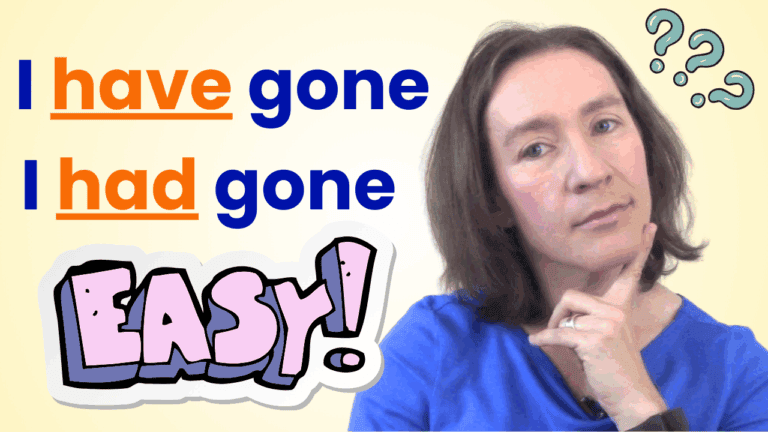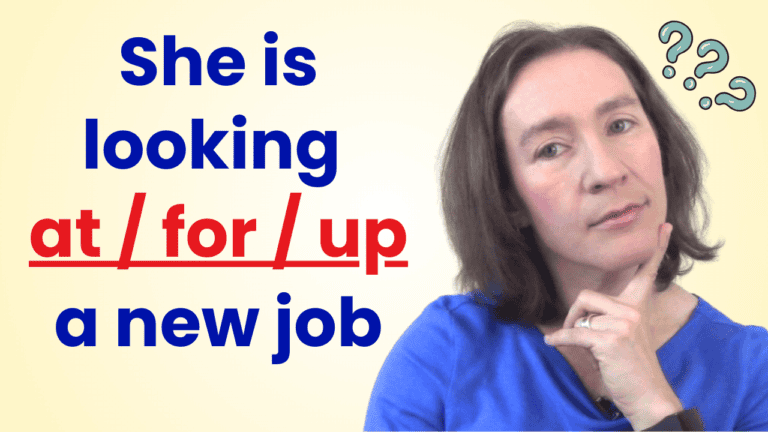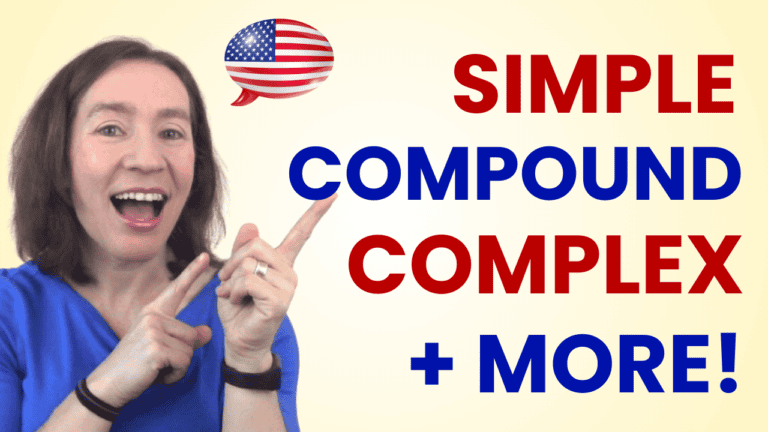
Today we’re going to focus on how to use two small but very common words in English – even and ever.
First let me quickly call your attention to a pronunciation difference – we say EE-ven with an EE like in see, but we say EH-ver with an EH sound like in get.
Repeat after me: even / ever
How to use EVER in English
Let’s start with “ever.”
This word is often used in questions and it means something like “at any time” or “at all”
- Have you ever been to Paris?
= have you traveled there at any time in the past? - Did you ever read that book I recommended to you?
= did you read it at all, in some point in the past? - How did you ever manage to get the work done so fast?
= adds a little emphasis to the surprise, how did you manage at all to do this work so fast?
Note that we can use “ever” in those questions, but we don’t use it in the answer, so we don’t say:
- I’ve ever been to Paris.
- Yes, I ever read the book.
- I’ve been to Paris.
- Yes, I read the book.
There are also a few expressions using “ever” – here are some of the most common:
Forever and ever is an informal way to give extra added emphasis to a LONG length of time.
- He promised to love her forever and ever.
- That day was so fun, I wish it could have lasted forever and ever.
Ever since means “from a particular time in the past and continuing to the present.”
- He’s been depressed ever since his girlfriend left him.
- Ever since we moved here, I’ve been working on fixing up the house.
You’ll sometimes see people say hardly ever, rarely ever, or scarcely ever to describe things that happen very infrequently, they rarely happen at all.
- It rarely ever rains in the desert.
- She used to be my friend but now she hardly ever calls me.
How to use EVEN in English
Now let’s look at the word even, which is used in a whole bunch of different ways.
Even can be an adjective meaning equal – if a recipe says to add even amounts of sugar and salt, it means equal amounts. If the score in a soccer game is 1-1, the score is even or the two teams are even.
Even can also mean flat, or on the same level without variation. If the floor or ground is even, it’s flat, it’s not inclined or bumpy. When painting your house, you would want to apply paint evenly, all at the same level, not too much over here and too little over there.
We also have even numbers like 2, 4, 10, 18 – even numbers can be divided by 2, in contrast to odd numbers like 3, 9, 15, 21.
Even can also function as an adverb. We can use it to add extra emphasis to a comparative adjective:
- The second movie in the series is better than the first one.
(this could mean the first one is OK/bad and the second one is better) - The second movie in the series is even better than the first one.
(this means the first one is good and the second one is extra good, it’s even better) - We’d already invited 100 people to the party, and my husband wanted to invite even more.
(100 is already a big number, and he wanted to invite an extra super big number)
We can also use even with a verb to talk about something that was surprising or unexpected:
- You didn’t even call me after your car accident – I was worried about you!
(I’m surprised that you didn’t call me) - My son made his bed, cleaned his room, and even washed the dishes.
(It was unexpected that he did the chore of washing the dishes)
Even can also be used to add emphasis to a comparison, often something that is negative:
- I can’t believe you didn’t know the name of our president. Even my 5-year-old knows that.
I’m comparing your knowledge negatively to a child’s knowledge
Finally, we have even though to introduce an opposing or contrasting condition.
- We still went hiking, even though it was raining.
- Even though she had no experience, she was hired for the job.
I hope this gives you a good idea of the most common ways we use even and ever in English!
It’s important to be able to use these words correctly so that your grammar sounds good and you can avoid mistakes. I know a lot of you are worried about mistakes or nervous about making them, and that’s why I created a course on 200 common errors in English.
You can check to see if you’ve been making any of the mistakes in there, and more importantly, the course will help you fix them and say things the right way, so you can speak and write more confidently.










